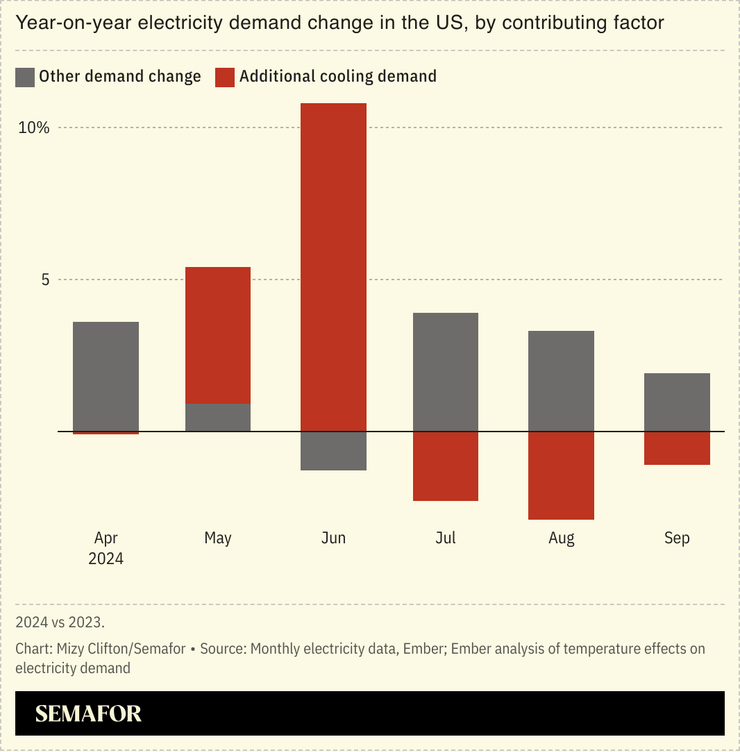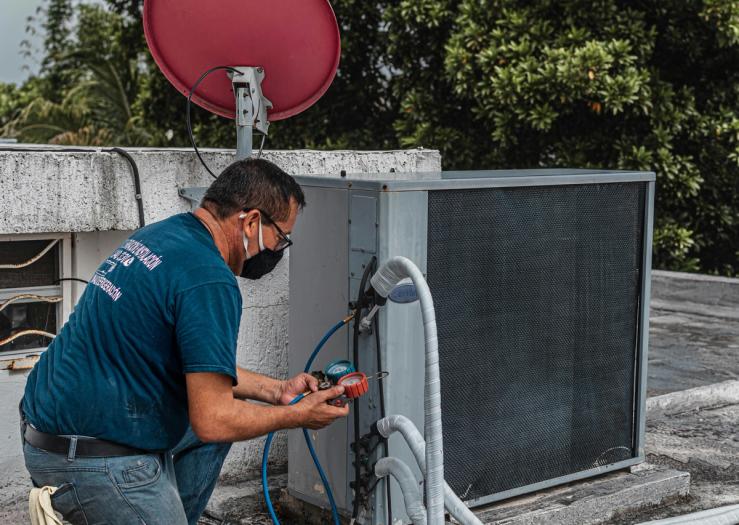Air conditioning needs driven by extreme weather in India, China, and the US last summer contributed toward a surge in coal generation to meet increased electricity demand, an Ember report found.

The research is the first to measure the precise impact of heatwaves on electricity consumption, and appears to confirm a vicious cycle that scientists have long warned about: Cooling accounted for all of the US’ year-on-year electricity demand growth in June, a third of which was supplied by coal and gas. Relying on fossil fuels in this way is a “losing strategy,” Kostantsa Rangelova, a global energy analyst at Ember told Semafor, “because it exacerbates the pressure from heatwaves, it makes [them] even more frequent, more severe.”
The good news is that clean energy generation “already plays a really big role,” particularly in China, Rangelova noted. “It’s just about scaling it up even faster” as the crisis accelerates, she said.
Rooftop solar and improving access to more energy-efficient air conditioners will also be part of the solution, the report argues. Still, low-income households — already disproportionately affected by extreme heat — face “numerous obstacles” to installing solar, from cash constraints and inadequate infrastructure to landlords’ objections, said Sheila Foster, a climate professor at Columbia University.
These groups would also require significant subsidies to switch to more efficient appliances in order to avoid heightened electricity costs, she said.

